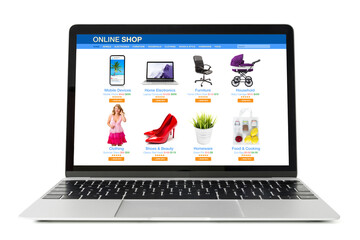Shopify is a great platform and well renowned to provide thousands of great opportunities to people for their businesses. It is one of the most effective places were hundreds of people take a path to self-employment. When you look it up, you can find many stories and articles regarding how to earn with Shopify, how to run a small store and many more. You can find many articles on how to get rich using the drop shipping method even when you have a small investment, while there are many successful businesses running, but does it always work for everyone?

The answer to it is that, even with many successful stores operating there are many more which fail, because of lack of great skill set for maintaining they stores. You can find people complaining on social media and other places where they told that even with receiving many visitors, they could not make any sales. Hundreds of Shopify stores are closed every day. But why?

There can be many reasons behind a Shopify store failing to make any sales. Here are 9 most probable reasons that lead Shopify store owners to shut down their stores.
1. Initiating a business with “get rich fast” thought
Do you ever wonder why there are so many people everyday that start their own Shopify store? IT is because they read everywhere about the opportunities and ways so that they could quit their daily grind and bring themselves up as successful entrepreneurs. When you look for Shopify on your search engine you find tons of articles on how you could get rich quickly, within a few weeks and almost effortlessly.
There are articles that tell you to open your Shopify store, for which it provides the means, get your plan from them and start importing from your suppliers, then these suppliers will deliver everything to your customers. They give the idea that you have nothing to do with the shipping process. But that’s not how it works.

If you plan on opening a store and think that you got nothing to do other than order management, you are wrong. Many Shopify VA’s (Virtual Assistant) share stories that how they got rich within weeks using Shopify. They make it sound like its such an easy thing to do. Having store and running it is a lot of work. You must keep your visitors engaged, update products, differentiate your store from others and execute marketing techniques.
Also, this will not make you rich in such a short period, everything takes time and effort to pay off. Therefore, many owners just quit their businesses within a couple of days, without even earning anything, because of a long list of daily to-dos.
2. Ignoring the need to do the math
It is not at helpful when you are ignoring the bills and expenses when before initiating a business. The right way to do it is that you carefully calculate and weigh all your expenses. You should keep in mind that its not only the platform you are paying for but also the design, shipping, updating products and marketing. Here are a few expenses that you must consider before diving in to start your own business:
- Shopify subscription
- Product source and its application subscription
- Designs (if you are not interested in the free designs)
- Digital marketing (Email marketing, Facebook and Instagram Ads, etc.)
- SEO (when done by another app)
- Product costs
- Shipping costs
- Monthly supplier fee (if you are working with a real supplier and with people from Etsy or eBay)
- Employees for your store (if it’s a big store)

3. Lack of a plan
Trying to jump into a business without knowing what to do next is fairly unwisely. If you are unaware with online business dynamics, it will result in low site traffic, less conversation rate and eventually the closure of your Shopify store. It is highly recommended that you have a proper corporate plan before beginning with ecommerce. Establish defined goals and find answers for the questions like:
- What you want to sell?
- How will your customers find you?
- How will they look for the products?
- What will appear to them on the screen at the very first?
- How will they be able to purchase it?
- What happens if the leave the cart?
- How will you reach them back?
- How will you complete the order?

4. Not doing the nice and competitor analysis
It is extremely important that you decide on your niche i.e. what is it that you want to sell in particular. If you start running your business without trying to target a specific group of people, it will end up badly. You will eventually have no people interested. You need to sell something which is very commonly bought by the audience.
For the competitor analysis, you need to need make sure that your store stands out from all the others. You require a name and message which is unlike all the others. Starting with the test orders or subscriptions to their mails gives you an advantage. You can communicate to your customers and market your products. In this way, you have a better strategy than others.

5. Taking suppliers from another side of the world
When you are having suppliers from a distant area, it takes a lot of time for the orders to deliver. It is natural that when we order something, we expect it to be delivered within a week maximum, after that we start to question if it will actually arrive or not. This will cause your customers to leave or they will leave a negative review or ask for a refund.
So, when you start an online store look for reliable suppliers that are not very distant, easily reachable and deliver orders on time.

6. Not making your store to differentiate
Ignoring to differentiate your store from others like Etsy, Amazon, eBay, etc. may cause your customers to leave. They are mostly familiar with these sites and when they find the exact same product, they will start to question why they should buy it from your store. If the price is same for the product and you offer the same delivery time, where is the advantage for the customer? Therefore, it is advisable to maintain a certain degree of differentiation to have optimal sales for your stores and avoid these situations.

7. Branding error
The problem with most Shopify merchants is that they do not decide on a particular niche before starting their store. They start as a general merchandise store and later try to reduce the variety of products, which is not at all helpful. The more variety you have, the more unnecessary time you will be spending advertising and marketing each product separately. As a result, you will be wasting a lot of money and be occupied with never ending tasks instead of focusing on specific group of people and keeping them engaged and eventually lose all customers.

8. Using faulty product source applications
It does not matter what kind of ecommerce method you are using for your Shopify store; you will require an app to accommodate you and your customers. It is important to consider all the basic differences of product managing tools. If you are choosing a faulty product sourcing app or the one that does not meet your requirements or has bugs, you will have a hard time updating your inventory.
Also, if you think your application is running smoothly but in actual the information that appears in front of your audience is false like, it shows that a product is stocked but in reality it is not, this will cause serious problems and customers and end up leaving bad reviews.

9. Out of stock products on sale
This problem is in relation to the above one, if you fail to keep your store updated and customers frequently find products to be out of stocky, they will leave the store. It is better to assign a good product sourcing app for this job instead of manually doing it every day. In this way, you can focus on the actual tasks and ways to improve your store.



